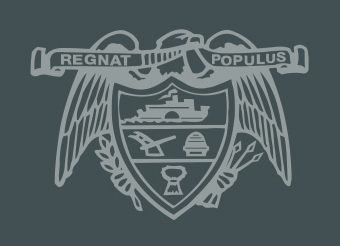
More than 162,000 Arkansans have been diagnosed with covid-19 since the beginning of the pandemic. Many have been treated by heroic doctors and nurses placing themselves in harm's way. I was hospitalized with pneumonia and covid-19 in July, and I want to reiterate how grateful I am to doctors, nurses and staff who cared for me and helped restore my health.
Arkansans struggling with covid-19 shouldn't have to worry about the cost of receiving lifesaving care. Unfortunately, large health insurance companies continue to send surprise medical bills to patients nationwide. It's time for this practice to stop.
As the former president of the National Council of Insurance Legislators, I have worked with lawmakers from across the country to draft legislation that protects patients and improves the quality of insurance plans. Millions of Americans pay expensive health insurance premiums each month with the expectation that the cost of their medical care will be covered in an emergency. I have seen firsthand how patients have been victimized by surprise medical bills through no fault of their own.
Surprise medical bills occur when a patient is treated by a doctor outside their insurance network. Recently, health insurance companies have used their market power to lower reimbursements that doctors and hospitals depend on. If doctors refuse, they are kicked out of network. Insurers have also raised premiums and co-pays, forcing patients to pay more out of pocket. A 2018 survey from the University of Chicago found that more than half of all American adults have received a medical bill they thought was covered by their insurance. These bills take advantage of vulnerable patients, and it's a practice that must stop.
Fortunately, Congress has introduced several pieces of legislation that would stop this practice. Unfortunately, some would do more harm than good.
Sen. Lamar Alexander of Tennessee has championed a government rate-setting solution that bases reimbursements on the median-in-network rate for care. This may sound like a reasonable solution, but it would further empower health insurance companies that have seen record profits during the pandemic. Rate-setting would lead to insurance companies further canceling contracts with health-care providers who charge above the current in-network rate, thus lowering the in-network rate for the rest of the providers. Capitalism is all about negotiations, and when the insurance companies try to eliminate negotiations, the system is broken.
The Congressional Budget Office has concluded that rate-setting would result in a 20 percent pay cut for doctors and hospitals. This would be disastrous for hospitals in rural communities in Arkansas. More than 18 rural hospitals are at high risk of closing across the state. We cannot afford to take any more resources away from these critical facilities in the midst of a pandemic.
Meanwhile, Sen. Bill Cassidy of Louisiana has supported an independent dispute resolution (IDR) model that holds patients harmless and brings insurers and providers together to negotiate a fair and reasonable payment. This model is supported by most doctors and hospitals because they know what is best for patients.
Former Supreme Court Justice Louis Brandeis famously called the states "laboratories of democracy." Different ideas are implemented in different states, and the federal government can see which policies work, and which don't. California recently implemented a government rate-setting scheme to address surprise billing; large health insurance companies lowered the reimbursements doctors depend on. Texas and New York, on the other hand, both passed IDR mechanisms that have proven effective at holding patients harmless and bringing together providers and insurers to reach a fair resolution. Congress should look to the success of IDR in Texas and New York.
Both senators recently announced that they had reached a compromise solution. This may sound like welcome news in principle, but in reality, this so-called compromise is rate-setting in disguise and heavily favors insurance companies at the expense of patients, doctors and hospitals. The compromise enacts rate-setting for a full year before an IDR system takes place. Even then, the IDR system heavily favors insurers. Under the proposal, arbiters would first be required to consider "median-in-network" rates when making judgments, which gives insurers the power to artificially lower rates. The health of our health-care system is at stake with this proposal.
I have always advocated for honesty and transparency in business and public policy. People who pay insurance premiums for medical coverage should not be subject to surprise medical bills when they are trying to recover from an illness or life-threatening condition. Policymakers at every level of government should ensure we never lose sight of "care" in the concept of health care.
Senator Cassidy's original IDR proposal is the right solution that protects patients and doctors in the midst of a pandemic, not large, profitable health insurance companies. I urge Senators Boozman and Cotton to support a true IDR solution to surprise medical billing. The interest of Arkansas citizens and American citizens should take priority; we are all affected personally in this matter.
--–––––v–––––--
Jason Rapert is a Republican member of the Arkansas Senate from the 35th district, chair of the Senate Insurance and Commerce Committee, and the former president of the National Council of Insurance Legislators.
"Stop" - Google News
December 04, 2020 at 05:02PM
https://ift.tt/3lFIvmn
Stop the surprise - Northwest Arkansas Democrat-Gazette
"Stop" - Google News
https://ift.tt/2KQiYae
https://ift.tt/2WhNuz0
Bagikan Berita Ini














0 Response to "Stop the surprise - Northwest Arkansas Democrat-Gazette"
Post a Comment